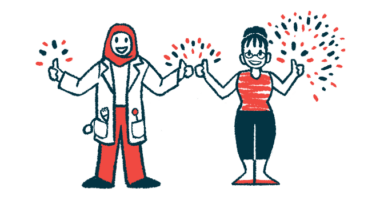Spanish-speaking MG support group to meet virtually this Saturday
Miastenia Gravis Grupo de Apoyo will meet bimonthly via Zoom in 2024

Spanish-speaking patients living with myasthenia gravis (MG) — and their caregivers, family members, friends, and anyone else seeking to learn more about the rare neuromuscular disease — are invited to join in the next meeting of the Virtual International Spanish MG Support Group, or Miastenia Gravis Grupo de Apoyo, to be held this Saturday, Nov. 18.
The group, part of a network of Myasthenia Gravis Foundation of America (MGFA) support groups, aims to help people with MG, and their caregivers, to better manage the disease. It also seeks to educate anyone wishing to learn more about the autoimmune disorder.
The upcoming Zoom meeting, scheduled for 1 p.m. CT and intended for patients, caregivers, and advocates, will cover all aspects of support, from symptoms to the disease’s impact on life quality. The group’s leader is Leah Gaitan-Diaz.
In addition to learning about what’s new in the field of MG, participants will be invited to share their experiences with the disease.
Beginning Jan. 13, 2024, the Spanish-language MG support group meetings for next year will be held on the second Saturday of every other month, at the same scheduled time.
Spanish-speaking support group one of 4 specialty MGFA programs
There are thought to be about 150-200 MG cases per 1 million people globally, with more than 70,000 patients in the U.S. alone.
The condition, in which self-reactive antibodies mistakenly target proteins in the body needed for nerve-muscle communication, primarily results in muscle weakness and fatigue that can affect day-to-day activities. The more the affected muscles are used in everyday tasks, the weaker they become until the person rests again.
While each MG journey is different, early disease manifestations can include issues with eyes and eyelids as well as with face, neck, and throat muscles, which can lead to difficulties swallowing, speaking, and at times holding the head upright.
Weakness in the muscles used for breathing, and the throat muscles necessary to keep the airways open, can lead to breathing problems.
We invite patients and caregivers to our MGFA-sanctioned support groups to learn more about managing MG and to receive caring support.
In addition to four virtual specialty support groups, including the one for Spanish speakers, the MGFA offers support resources organized by location or MG type. The other specialty groups include those meant for MG patients who do not test positive for known MG-associated antibodies — with the next also occurring on Saturday — as well as for young adults living with the disease and for caregivers.
“Whether online, in-person or in a hybrid model, we invite patients and caregivers to our MGFA-sanctioned support groups to learn more about managing MG and to receive caring support,” the foundation states on its support group webpage.
For more information on the Spanish-speaking group, those interested may send an email to Gaitan-Diaz at [email protected] or to the Myasthenia Gravis Foundation of America at [email protected].
The MGFA, founded in 1952, is a patient advocacy organization that works to find a cure for MG while improving the lives of those living with the disorder.








